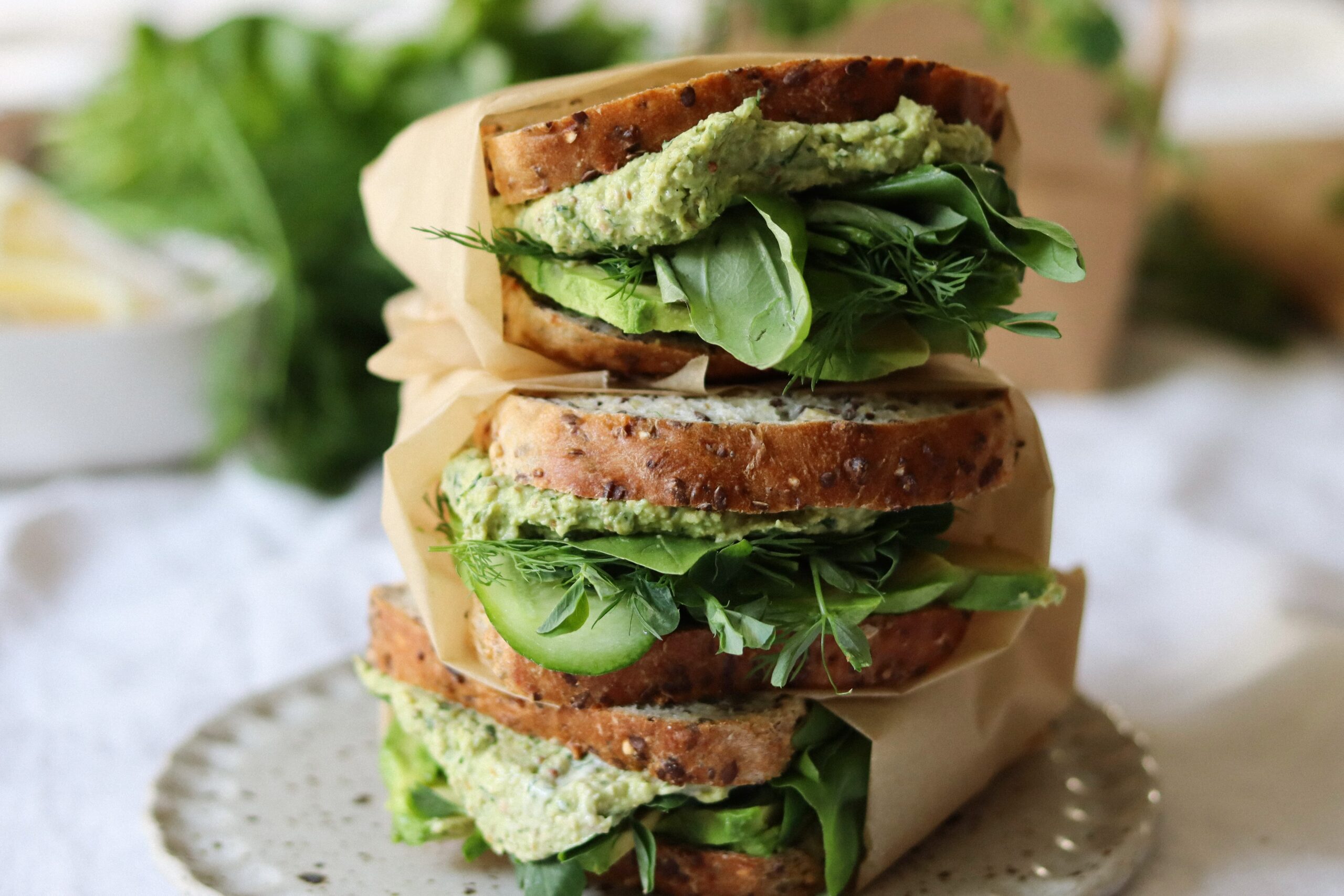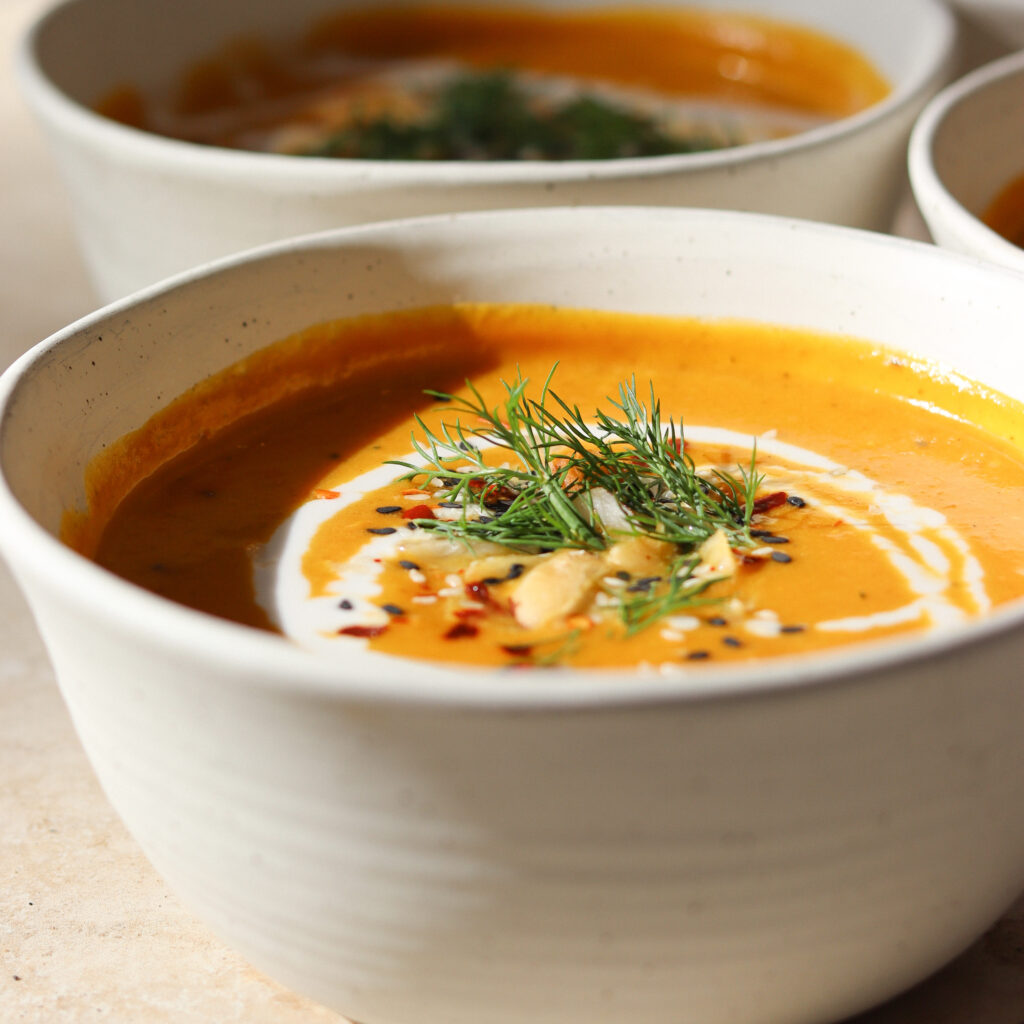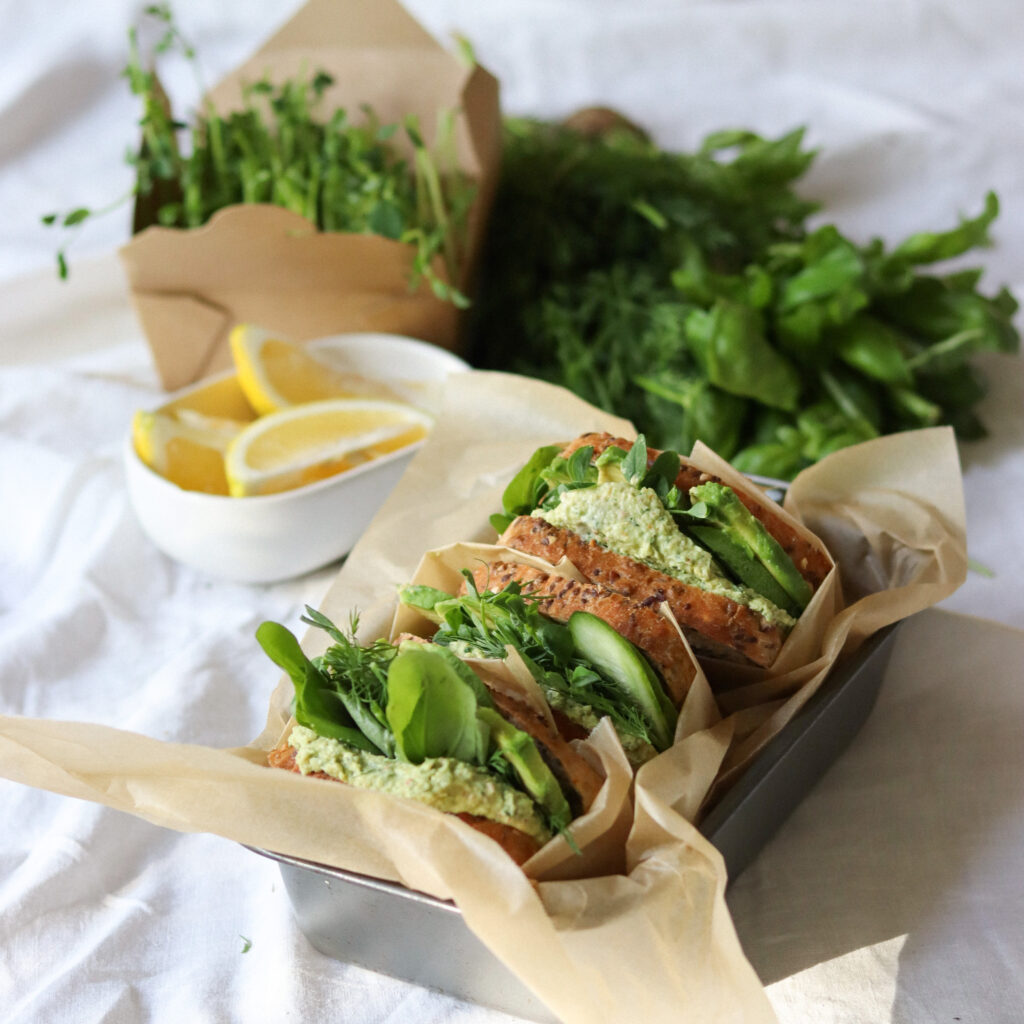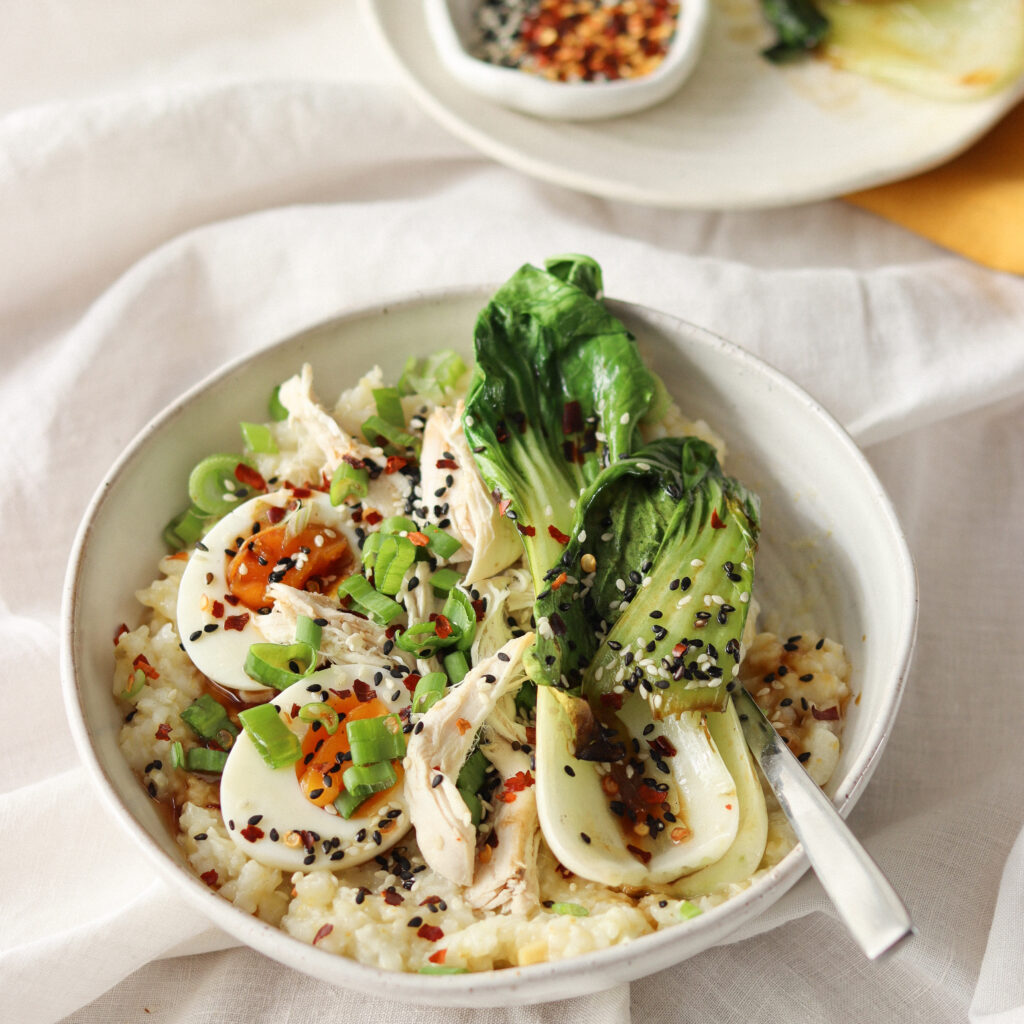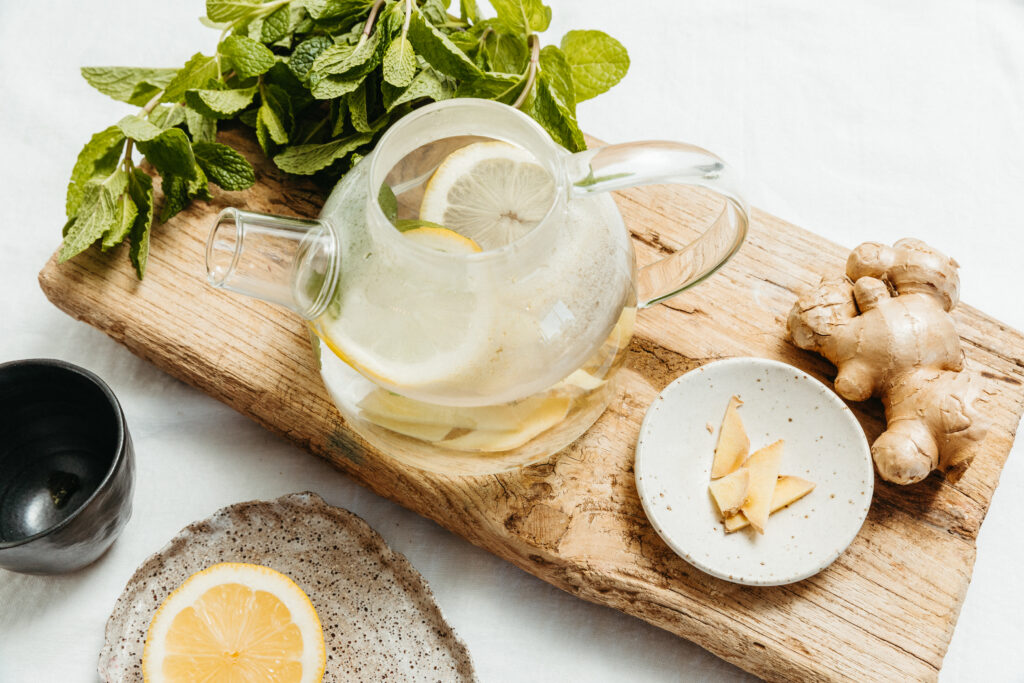Support your movement journey with our Fluidform Your Body 2.0 6-week meal plan.
When it comes to your health, movement and nutrition go hand in hand. A healthy diet fuels an active mind and body, and consistent movement helps motivate a healthy lifestyle.
The foods we eat play an important role in both our physical and mental wellbeing.
THE PHYSICAL BENEFITS FROM FOOD
Protein – Protein builds and maintains strong and healthy muscles, and builds enzymes and proteins for the body’s cellular processes. Adequate protein intake boosts metabolism. Protein also helps keep you satisfied between meals and reduces cravings.
Great animal sources of protein to consider include: lean beef, lamb, chicken, turkey, fish and eggs.
Vegan sources of protein to consider include: organic tofu, tempeh, chickpeas and beans.
Carbohydrates – Carbs provide the body with glucose which is converted to energy and used by our body’s cells. Carb requirements differentiate based on activity level and body mass.
Great sources of carbs to consider include: whole grains such as rice, quinoa and oats, potato, sweet potato, legumes
Fats – Good fats nourish the brain and nervous system. Fats are integral for brain function, hormone function, healthy weight and inflammatory response within the body. Fats also support skin health.
Great sources of fats to consider include: coconut products/coconut oil, tahini, ghee, avocado/avocado oil, nuts and nut butters, seeds and salmon.
Vitamins and minerals- protect and enhance immunity, cardiovascular system, bodily functions and menstrual health
Fibre – support digestive system and energy levels
Antioxidants – reduce risk of disease and maintain healthy skin, hair and nails
Other foods to consider:
Fermented Foods – Fermented foods such as sauerkraut, kimchi, miso and kefir help to support a healthy gut flora balance. Fermented foods give your body a healthy dose of probiotics with are crucial to digestion.
Sugar – Our bodies require sugar to survive however in large quantities or in the wrong form sugar can be damaging. When using sugar consider natural forms including raw honey, pure maple syrup and medjool dates
THE MENTAL BENEFITS FROM FOOD
Great nutrition can help with:
Improved focus and concentration, boosted mood, increased brain function, healthy and maintained energy levels and the release of healthy hormones to boost self esteem.
Introducing FLUIDFORM YOUR BODY 2.0 – a 6-week transformation challenge and meal plan of daily recipes to transform your mind and Fluidform Your Body.
This 6-week meal plan comprises of 3 x 14-day meal plans to cleanse, nourish and strengthen your body as you move through the movement challenge. We encourage you to follow the meal plans in the recommended order for ultimate results, however you are free to make swaps and alterations to suit your needs and lifestyle.
FLUIDFORM YOUR BODY 2.0 MEAL SCHEDULE
Part one. CLEANSE launching July 18th
A clean, vegetable-rich meal plan with fewer refined carbs to make way for more vegetables and lean protein. In this first stage of the challenge we focus on cleansing and detoxing the body to promote clean energy, healthy digestion and glowing skin.
New recipes include:
- Pesto & Goats Cheese Folded Eggs
- Coconut, Turmeric & Pumpkin Soup (Kee’s favourite)
- Chicken & Ginger Congee
- Mediterranean Chicken Bake
- Matcha Truffles
Download your Weekly Shopping List & 14-day Meal Plan
Part two. NOURISH August 1st
Similar to CLEANSE this meal plan is vegetable rich, however in this second stage of the challenge we begin adding in more whole grains and emphasise nourishing, sustaining and warming meals.
New recipes include:
- Pumpkin & Pesto Tartine
- Almond Butter Tofu Nourish Bowl
- Green Goddess Chickpea Sandwich (Kee’s favourite)
- Mushroom & Leek Risotto
- Eggplant & Butternut Lasagna
Download your Weekly Shopping List & 14-day Meal Plan
Part three. SUSTAIN August 15th
In this final stage of this challenge we build upon the previous nutrition pillars and introduce higher protein meals to build muscle and strength and sustain energy.
New recipes include:
- Green Shakshuka (Kee’s favourite, three times a week!)
- Kimchi Fried Rice
- Lemon, Chicken & White Bean Soup
- Grilled Snapper with Salsa Verde
- Spiced Cacao
Follow the daily recipes of recommended breakfast, lunch, dinner and snacks. Listen to your body, and alter recipes to suit your own dietary and nutritional needs.
Our top 5 tips to make the most of your 6-week challenge:
1. Stay hydrated:
Aim to drink at least 2L of clean, filtered water each day to maintain your fluids with added exercise each day. Stick to water and herbal tea, we recommend eliminating sugary drinks such as soft drink, juice and flavoured water as well as excess caffeine. Start your day with a large glass of warm water and lemon to start the day hydrated, especially before having any caffeine which is dehydrating. You typically get 20% of hydration from the food you eat so don’t forget to include foods such as cucumber, iceberg lettuce, celery, tomatoes, watermelon and strawberries.
Try our Ginger & Lemon Detox Tea
2. Be prepared:
The key to keeping your health on track. Spend some time on Sunday getting yourself ready for the week ahead. Prepare the following recipes at the beginning of each week to set yourself up for success.
Week one: Seed Bread Matcha Truffles
Week three: Zucchini Bread Granola Bars
Week five: Matcha Truffles and Savoury Muffins
Visit our Guide To Recommended Brands or the brands we opt for when grocery shopping. Use this as a guide only, the key to eating well is keeping it simple, local and fresh.
3. Keep your food fresh:
- Compartmentalise your fridge and pantry into categories: fruit and vegetables, grains and legumes, meat and fish. This helps to showcase everything you have available, to avoid foods going to waste. Keep foods with a shorter shelf life easy to see and use, to avoid being forgotten and going to waste.
- Only purchase enough food for the week ahead, to avoid food waste.
- Prepare any dressings or dips and keep them refrigerated, in an airtight container or glass jar.
- Bread can be stored in the fridge, and lightly toasted with meals. You can also store bread in the freezer. Be sure to slice the bread prior to freezing to allow for easy defrosting later. Simply place the frozen slice straight in the toaster.
4. Get high quality sleep
Aim for 7-9 hours of high quality sleep each night. Sleep is the restorative phase of our day, giving our bodies and brain a rest allows us to reset. Maintaining a healthy sleep schedule encourages healthy hormone production, boosted immune system, better mood, exercise performance and increased productivity. To ensure a great nights sleep, avoid drinking caffeine after midday and consider limiting the use of screens before bed where possible.
5. Manage stress
Prolonged time in our sympathetic nervous system (fight or flight mode) can be damaging to our gut, energy levels, mental health and general wellbeing. Consider introducing elements of mindfulness to your daily routine to encourage ‘rest and digest’ mode within the body. Our favourite ways to practice mindfulness include: guided meditation, yoga, stretching, journalling and time spent in nature.
FOR BREASTFEEDING & BOTTLE FEEDING MOTHER’S
It is important to remember that every woman and their baby will respond differently to different foods while they are breastfeeding and bottlefeeding. There are no foods that every woman should avoid, however there are a number of foods you can limit or be aware of during this period, to ensure healthy milk production and a happy and healthy baby.
Like any period in your life, eat foods in moderation and maintain a well-balanced diet.
Foods to limit or be aware of:
- Alcohol and highly processed foods / added sugars.
- Caffeine (includes black tea).
- Seafood high in mercury including tuna, swordfish, mackerel.
- Herbs such as peppermint, parsley and sage.
- Spicy foods and garlic may impact the flavour of breastmilk, which may impact how your baby responds.
- Be aware of common food allergies: dairy, soy, gluten, eggs, peanuts, citrus and fish. Monitor how your baby responds to these foods.
